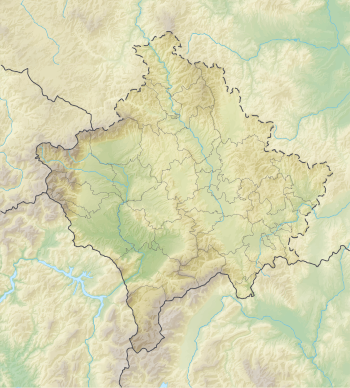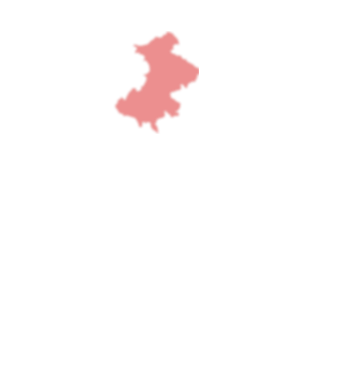| 2021 North Kosovo crisis | |||
|---|---|---|---|
| Part of the Kosovo dispute | |||
Locations of barricades and traffic blocks are shown as | |||
| Date | 20 September – 2 October 2021 (1 week and 5 days) | ||
| Location | |||
| Caused by | Opposition to the Kosovan government's decision to ban Serbian license plates | ||
| Goals | Legalisation of Serbian license plates | ||
| Methods | |||
| Resulted in | Interim agreement in Brussels: | ||
| Parties | |||
| Lead figures | |||
| |||
| Number | |||
| |||
Triggered by the Government of Kosovo's decision to reciprocally ban Serbian license plates, a series of protests by Serbs in North Kosovo—consisting mostly of blocking traffic near border crossings— began on 20 September 2021. The ban meant that individuals who owned vehicles with Serbian license plates in Kosovo would have had to switch for Kosovar license plates at a government vehicle registration center. The ban was intended to mirror a prohibition against Kosovar license plates that had been imposed by Serbia since 2008. The Government of Serbia does not recognise Kosovo's independence and considers the Kosovo–Serbia border to be temporary.
During the crisis, two government vehicle registration centers in Zvečan and Zubin Potok were targeted by arsonists. The protests caused relations between Serbia and Kosovo—which had been improving— to worsen, and led to the Serbian Armed Forces being placed on heightened alert. Both sides accused the other of great overreach. International powers, particularly the European Union and NATO, called for de-escalation, while Russia criticised Kosovo.
On 30 September, an agreement was reached to end the license plate ban, taking effect on 4 October. In return, the protesters agreed to disperse. Pursuant to the terms of the agreement, Kosovar license plates in Serbia and Serbian license plates in Kosovo now have their national symbols and country codes covered with a temporary sticker.
- ^ "Srpska lista: Odbijeno da se sklone specijalci, a da ostane odluka o tablicama". www.slobodnaevropa.org (in Serbian (Latin script)). Radio Free Europe. 28 September 2021. Archived from the original on 2 October 2021. Retrieved 2 October 2021.
- ^ "Albania Defends Kosovo's Sovereignty, Criticizes Serbia's Military Maneuvers". Exit News. 27 September 2021. Retrieved 29 September 2021.

